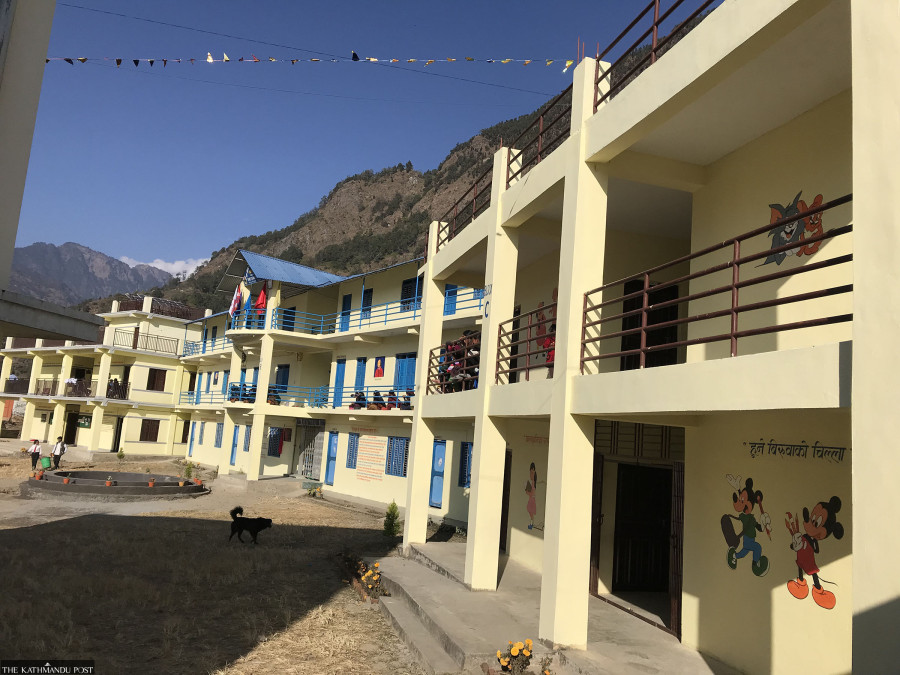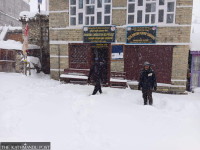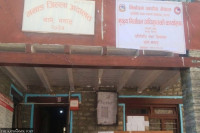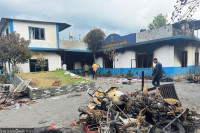Gandaki Province
Technical education in Myagdi’s community schools fails to take off
Lack of qualified teachers and high qualification requirement for courses are to be blamed.
Ghanshyam Khadka
All six municipalities of Myagdi district have introduced technical education in community schools with the aim to arm the local youth with income-generating skills. However, the result so far has been dismal, say educators.
The schools have introduced technical courses in coordination with the Council for Technical Education and Vocational Training (CTEVT) following the directive of the Ministry of Education.
One of the reasons why technical education has failed to take off in the schools is the qualification requirement for admission in the new programme. In order to study Electricals, Civil Engineering, Crop Science and other subjects, students must achieve high marks in English, Mathematics and Science but most students have not been able to score the desired percentage.
For instance, at Takam Secondary School of Dhawalagiri Rural Municipality, in a class of 40 students, only eight to 10 students pass the compulsory subjects to qualify to sit for technical courses, according to Dal Bahadur Thapa, chief of Education Development and Coordination Unit.
A more pressing reason, however, is the shortage of qualified teachers to teach the technical subjects, says Jung Bahadur Garbuja, principal of Kishani Higher Secondary School of Malika Rural Municipality-7.
According to the Education Development and Coordination Unit, the Department of Education has provided significant financial assistance to the local units, including a teacher’s post in each school, to attract students towards technical studies but the lack of qualified teachers has hampered its efforts.
Most schools are currently in search of qualified teachers for the technical subjects since they haven’t been able to retain the few teachers they had hired earlier.
“Even when a teacher joins the school, he/she barely lasts for six months,” said Thapa. “The lack of infrastructure in remote areas, low pay and a low number of students deter them from committing long term.”
Students from grades eight to 12 in community schools are eligible to take up the technical course.
“I came here to study Electrical Engineering but the classes are irregular. And we weren’t able to focus on our curriculum for the last two years due to the pandemic,” said Pravas Baruwal, a grade 12 student at Prabha Secondary School. “In-person classes have finally resumed but we haven’t been able to study the technical course subjects because we don’t have a teacher. The school administration says they will soon bring a qualified teacher but I don’t see that happening any time soon.”
At present, Takam Secondary School of Dhawalagiri Rural Municipality and Prabha Secondary School of Annapurna Rural Municipality are teaching Electrical Engineering from grades eight to 12.
According to Tej Bahadur Gurung, chairman of the management committee of Prabha Higher Secondary School, the school has been conducting electrical engineering classes for grade 12.
Puskar Bhandari, a resident of Dhawalagiri Rural Municipality-7, whose daughter goes to Takam Secondary School, says technical education is good to ensure a secure future for his child but the lack of qualified teachers in schools has made him sceptical about the course.
“My daughter wants to become an electrical engineer but there are no qualified teachers at the school,” said Bhandari. “I support her decision but I am doubtful.”
The schools run classes for Crop Science, Animal Science, Junior Technical Assistant, Diploma in Agriculture, and Electrical Engineering, among others.
According to Thapa, the chief of Education Development and Coordination Unit, the local unit started supporting technical studies such as Crop Science in community schools to replace traditional agricultural methods in the rural areas with modernisation, commercialisation and mechanisation of agriculture.
According to Hari Subedi, the technical coordinator of Galeshwor Higher Secondary School, the school has started teaching civil engineering to grade 12 students under the vocational and technical education programme so as to meet the demand for workforce in the technical manpower sectors.
The Department of Education has granted Rs 2.5 million to each school to provide salaries to one teacher and one assistant teacher at the secondary level. The students of the technical course get an on-the-job training grant at Rs 15,000 per annum.
But the fate of technical courses being taught in the community schools of Myagdi hangs in the balance as very few students qualify for such courses and qualified teachers are hard to come by.




 9.7°C Kathmandu
9.7°C Kathmandu.jpg)











